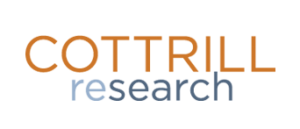The Oxford Internet Institute is publishing “Coronavirus Misinformation: Weekly Briefings” that provide a weekly report about the spread of coronavirus information across multiple social media platforms. The Briefings are part of the Computational Propaganda Research Project (COMPROP), based at the Oxford Internet Institute, University of Oxford, which “investigates the interaction of algorithms, automation and politics. This work includes analysis of how tools like social media bots are used to manipulate public opinion by amplifying or repressing political content, disinformation, hate speech, and junk news.” To be classified as Junk News and Information, the source must fulfill at least three of these five criteria: Professionalism (no standards), Style (emotionally driven language), Credibility (rely on false information), Bias (skewed viewpoint), and Counterfeit (mimicking).
Key findings in the latest briefing include:
- Of all the junk news that social media users engaged with last week, 28% of it came from state-backed news agencies, and 91% of engagement with state backed agencies involves media outlets from Russia and China.
- In total, articles produced by junk health news sources were engaged with four million times this week. On average, articles from state-backed media sources nonetheless stimulated the most engagement.
- Thematically, prominent junk health news narratives this week included (1) intimations of virus origin from the Wuhan virology lab and (2) attacks on non-citizen status residents in the US through criticism of US Democratic Party proposals.

